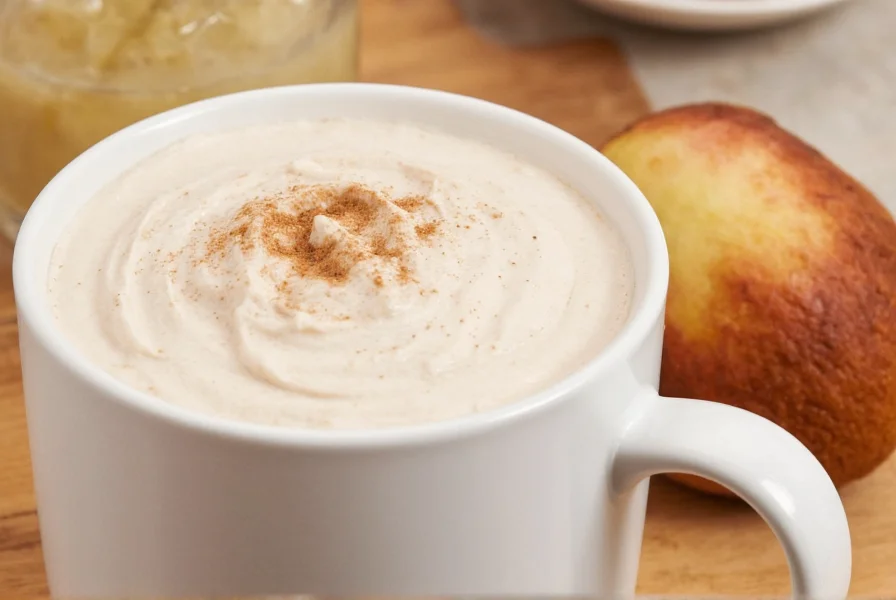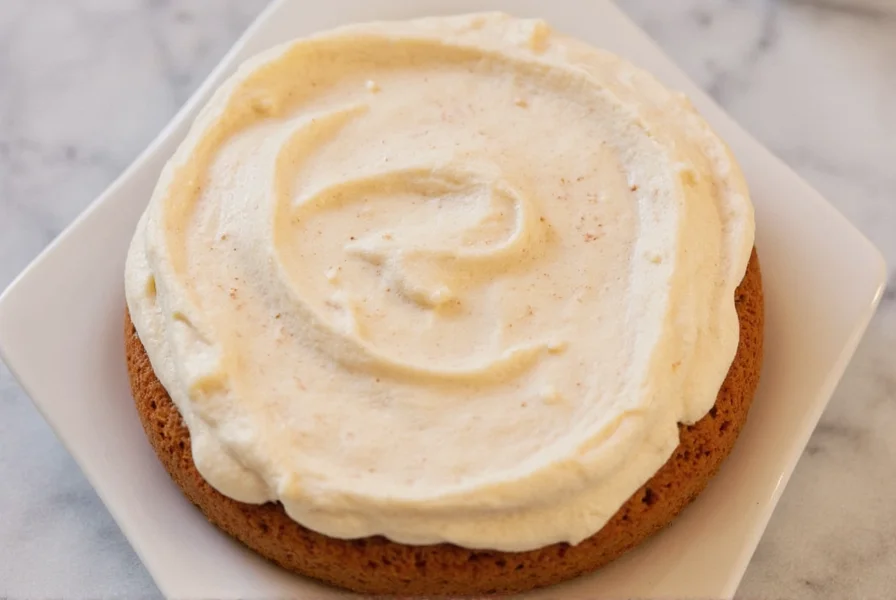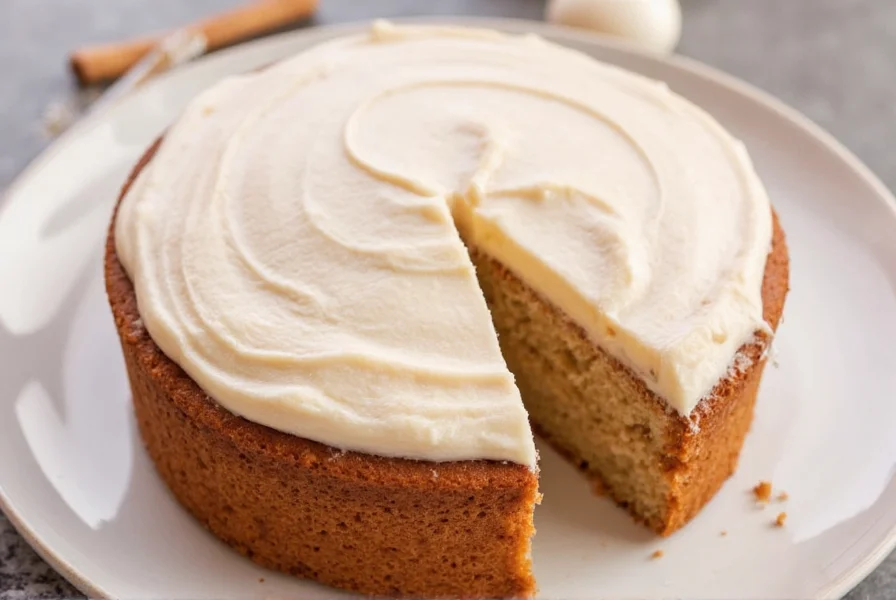The Essential Guide to Perfect Cinnamon Frosting
When executed properly, cinnamon frosting transforms ordinary baked goods into memorable treats. Unlike generic spice blends, pure cinnamon frosting highlights the distinctive warmth of cinnamon while maintaining the creamy texture expected of quality icing. This guide explores the science behind successful cinnamon frosting, complete with a foolproof recipe and professional tips you won't find in basic online tutorials.
Why Cinnamon Frosting Works: The Flavor Science
Cinnamon contains cinnamaldehyde, the compound responsible for its signature warmth and slight sweetness. When combined with fat (like butter or cream cheese), these flavor compounds dissolve effectively, creating a more integrated taste than simply sprinkling cinnamon on finished products. The powdered sugar base provides necessary sweetness to balance cinnamon's natural bitterness while contributing to the proper consistency.
Professional bakers emphasize that freshly ground cinnamon makes a noticeable difference compared to pre-ground varieties. Ceylon cinnamon offers a more delicate, complex flavor preferred for subtle applications, while Cassia cinnamon provides the stronger, familiar bakery-style taste perfect for cinnamon rolls.
Classic Cinnamon Buttercream Recipe
This tested recipe produces enough frosting for 12 standard cinnamon rolls or one 9-inch layer cake. The secret lies in the gradual incorporation of spices and proper temperature control.
| Ingredient | Measurement | Professional Tip |
|---|---|---|
| Unsalted butter (room temperature) | 1 cup (2 sticks) | Use European-style butter with higher fat content for richer texture |
| Powdered sugar | 3-4 cups | Sift before measuring to prevent lumps in final product |
| Ground cinnamon | 1½-2 tsp | Start with 1½ tsp, add more after tasting base mixture |
| Heavy cream or milk | 2-3 tbsp | Add gradually to achieve perfect spreading consistency |
| Vanilla extract | 1 tsp | Use pure extract, not imitation, for authentic flavor |
| Salt | ¼ tsp | Essential for balancing sweetness and enhancing cinnamon flavor |
Step-by-Step Preparation
- Cream the butter for 3-5 minutes until light and fluffy (this incorporates air for proper texture)
- Add vanilla and salt, mixing until fully incorporated
- Gradually add powdered sugar ½ cup at a time, mixing on low speed
- Incorporate cinnamon after adding 2 cups of sugar, then continue with remaining sugar
- Add cream/milk 1 tablespoon at a time until desired consistency is reached
- Final whip on medium speed for 1 minute to achieve optimal texture

Advanced Variations for Specialized Applications
While basic cinnamon buttercream works for most applications, these specialized variations address specific baking challenges:
Cream Cheese Cinnamon Frosting
Ideal for carrot cake and spice cake, this version replaces half the butter with full-fat cream cheese. The tanginess balances cinnamon's sweetness while providing structural stability. Use 8 ounces full-fat cream cheese, softened completely before mixing. This variation requires refrigeration and sets up firmer than traditional buttercream.
Vegan Cinnamon Frosting
For dairy-free applications, substitute butter with refined coconut oil (which lacks coconut flavor) and use plant-based milk. Add 1 tablespoon of cornstarch to help stabilize the mixture. This version works particularly well with pumpkin spice cakes and vegan cinnamon rolls.
Boiled Cinnamon Frosting
A traditional method that creates exceptionally smooth texture. This involves making a cooked sugar syrup infused with cinnamon sticks, then gradually pouring it into beaten egg whites. The result is a stable, glossy frosting perfect for layer cakes that need to hold up in warm conditions.
Perfect Pairings: What Baked Goods Work Best
Cinnamon frosting isn't universally appropriate for all desserts. Understanding flavor compatibility prevents overwhelming the base product:
- Cinnamon rolls - The classic application where generous amounts work perfectly
- Carrot cake - Cream cheese cinnamon version creates ideal flavor harmony
- Spice cake - Use lighter application to complement rather than duplicate spices
- Pumpkin bread - Works well but reduce cinnamon quantity by 25% to avoid overpowering
- Apple pie - Surprisingly effective as a drizzle on warm slices
Avoid pairing cinnamon frosting with delicate flavors like vanilla bean cake or lemon desserts where the spice would dominate.
Troubleshooting Common Cinnamon Frosting Problems
Even experienced bakers encounter issues with cinnamon frosting. Here's how to fix them:
Grainy Texture
Cause: Undissolved sugar or improperly incorporated cinnamon
Solution: Sift powdered sugar twice and mix cinnamon with a small amount of liquid ingredient first. Whip mixture longer (5-7 minutes total).
Overpowering Cinnamon Flavor
Cause: Too much cinnamon or using low-quality spice
Solution: Start with less cinnamon (1 tsp per 4 cups powdered sugar), then adjust. Add 1-2 teaspoons of maple syrup to mellow the spice notes.
Too Runny
Cause: Excess liquid or warm ingredients
Solution: Chill mixture for 15 minutes, then gradually add more sifted powdered sugar (¼ cup at a time).
Too Stiff
Cause: Insufficient liquid or over-mixing
Solution: Add liquid by the teaspoon while mixing on low speed until proper consistency returns.

Storage and Application Techniques
Proper storage maintains cinnamon frosting's quality:
- Room temperature: Keeps for 2 days in airtight container
- Refrigerated: Lasts up to 1 week; bring to room temperature and re-whip before using
- Freezer: Store up to 3 months; thaw in refrigerator overnight
For professional-looking application:
- Use an offset spatula for smooth, even spreading
- Apply to completely cooled baked goods to prevent melting
- For cinnamon rolls, use a piping bag with large round tip for generous swirls
- Add decorative touches with cinnamon sugar sprinkled on top while frosting is still soft
Frequently Asked Questions
Can I make cinnamon frosting without powdered sugar?
Yes, though the texture will differ significantly. A boiled cinnamon frosting using granulated sugar creates a cooked icing alternative. Combine 1 cup sugar, ¼ cup water, 2 cinnamon sticks, and a pinch of salt in a saucepan. Bring to soft-ball stage (235°F), then slowly pour into 3 beaten egg whites while mixing. Continue beating until cooled and thickened. This version works well for drizzling but doesn't spread like traditional frosting.
Why does my cinnamon frosting taste bitter?
Bitterness typically comes from two sources: using too much cinnamon (especially lower-quality varieties) or cinnamon that's past its prime. Cinnamon contains natural compounds that become bitter when overused. Start with less cinnamon than recipes suggest (1 tsp per 4 cups powdered sugar), then adjust to taste. Always use fresh cinnamon - ground cinnamon loses potency after 6 months. For best results, grind whole cinnamon sticks just before making frosting.
How can I make my cinnamon frosting more stable in warm weather?
To improve heat stability, increase the butter-to-sugar ratio slightly (use 1¼ cups butter per 4 cups sugar) and reduce liquid ingredients. Adding 1-2 teaspoons of corn syrup helps stabilize the emulsion. For outdoor events in warm climates, consider making a Swiss meringue buttercream base with cinnamon infusion, which holds up better in heat than traditional American buttercream. Never apply frosting to warm baked goods, as this immediately compromises stability.
What's the difference between cinnamon roll frosting and regular cinnamon frosting?
Cinnamon roll frosting typically contains cream cheese and is designed to be more tangy and spreadable, with a slightly looser consistency that soaks into the rolls. Regular cinnamon frosting usually refers to a buttercream-based version that's sweeter and firmer. Authentic cinnamon roll frosting often includes a small amount of evaporated milk or cream for extra richness and a distinctive flavor profile that complements the yeast dough.
Can I add other spices to cinnamon frosting?
Yes, but with careful balance. Nutmeg (⅛ tsp per 4 cups sugar) complements cinnamon well without overpowering. Cardamom (¼ tsp) adds interesting complexity to cream cheese cinnamon frosting. Avoid adding cloves or allspice directly to the frosting, as their strong flavors become harsh when not cooked. For pumpkin spice variations, use pre-mixed pumpkin pie spice at 1½ tsp per 4 cups sugar rather than individual spices.











 浙公网安备
33010002000092号
浙公网安备
33010002000092号 浙B2-20120091-4
浙B2-20120091-4